Wilderness Medicine Fellowship
The UVM Health Network Wilderness Medicine Fellowship strives to foster active participation in multiple domains of wilderness medicine. Each component of the fellowship intentionally builds critical skills, allowing fellows the strongest possible preparation for a career in wilderness medicine.
Our fellows get out there in austere environments and do the real work with tireless faculty support.
Foundational Components
Expedition Medicine
JIRP: The fellow will have the opportunity to work as the expedition physician for a group of glacier scientists on the icefield in Alaska with the Juneau Icefield Research Program (JIRP). The fellow will participate in medical kit preparation, learn fundamentals in glacier travel and rescue skills, and provide medical care for the scientist team. Towards the end of their year they will participate in the Medical Director experience for JIRP, working with the Medical Director and UVM WM faculty to screen medical forms and make medical kit adjustments for the following season.
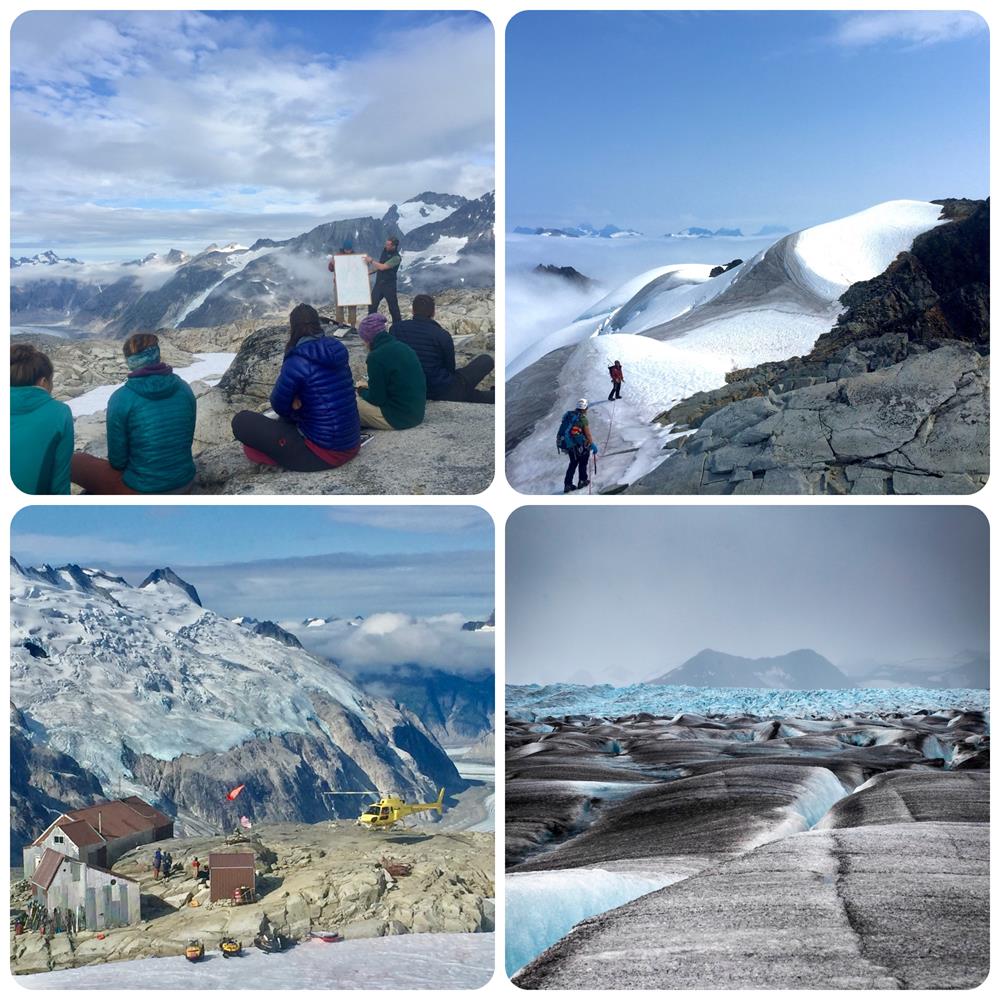
Aconcagua: Our fellowship has established a relationship with the Argentinian provincial government and the medical group stationed on Aconcagua, the highest peak in the western hemisphere at almost 7000 meters (22,837 ft). Fellows have the opportunity to work alongside the mountain medicine physicians at multiple base camps along the way to the summit, with daily exposure to conditions such as high altitude pulmonary edema, cerebral edema, acute mountain sickness, frostbite, and more. This incredible opportunity gives valuable exposure to the evaluation and stabilization of patients in high-elevation environments, coordinating helicopter evacuations, as well as the overall logistical considerations and preparation involved in international alpine expeditions.
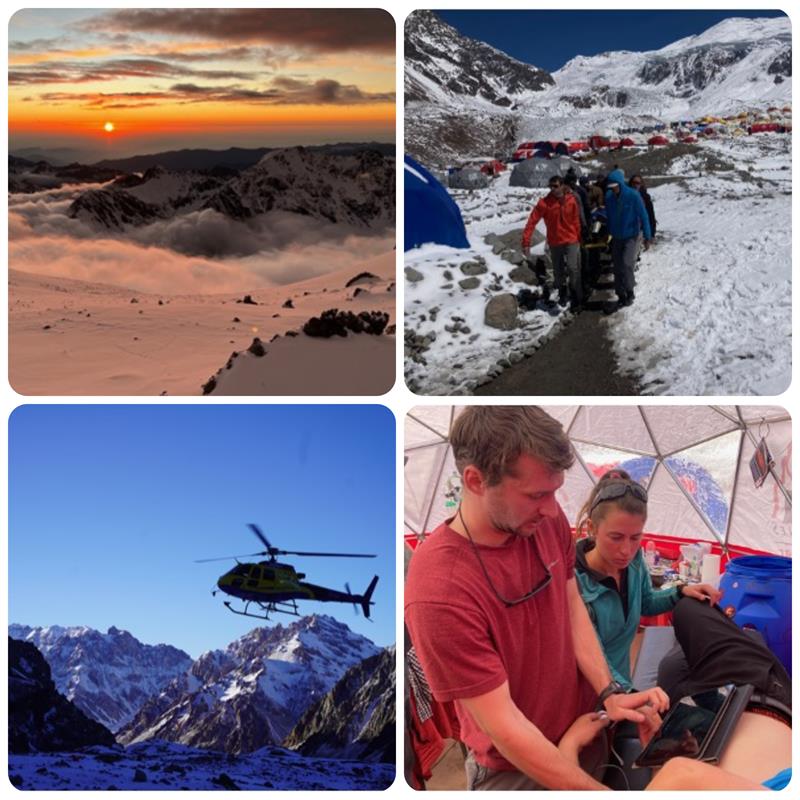
Wilderness Medicine Education: The fellow will direct two WM electives for fourth-year medical students, and, with the support of the Fellowship Director, will learn curriculum design, syllabus planning, and direct teaching in wilderness environments. One course will take place in the fall with warm weather, and a second will be on snow in January. Each course is a 2 week outdoors intensive experience.
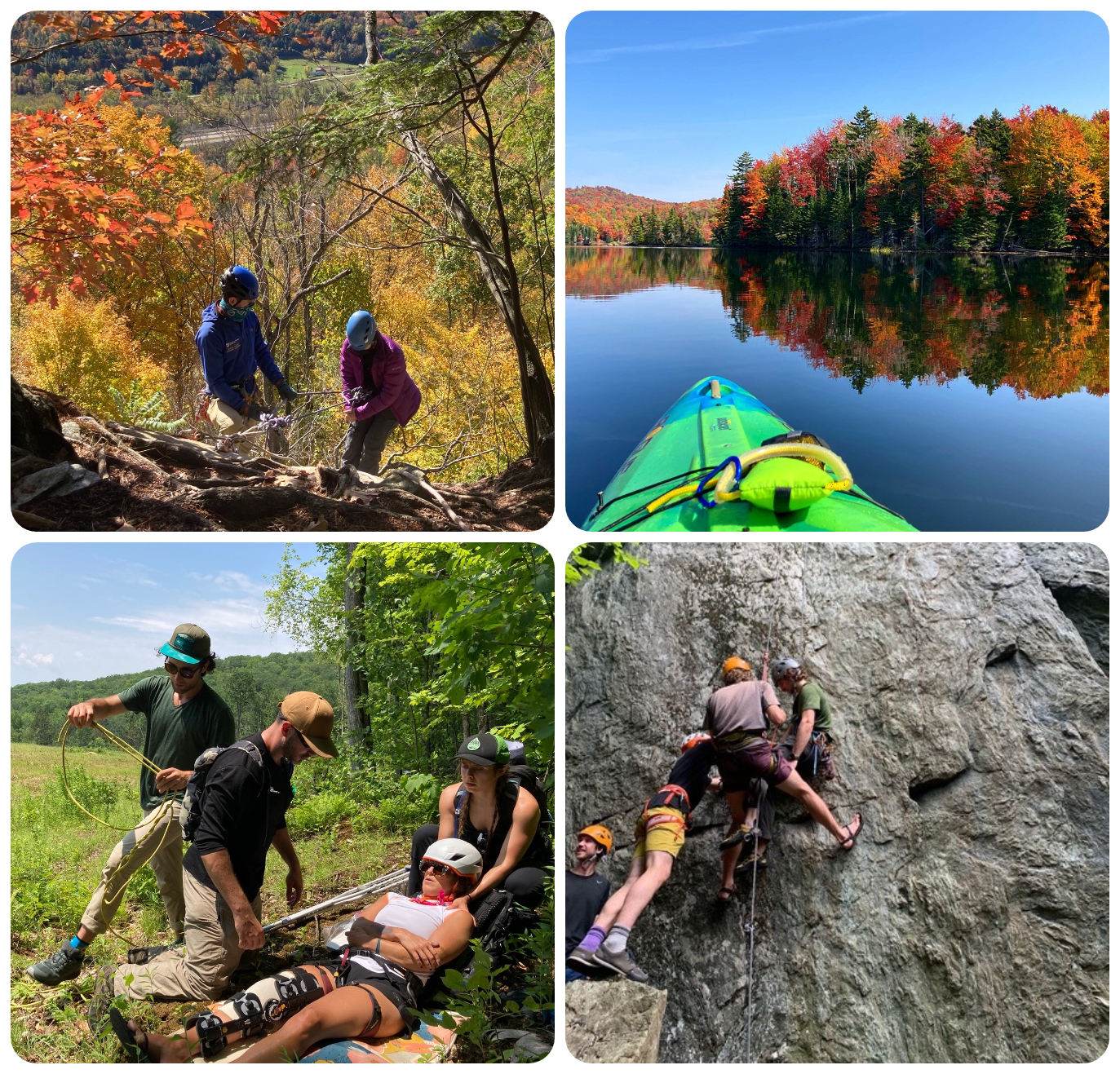
Wilderness EMS/SAR: The Fellow will work directly with the Vermont State SAR Director at Incident command for large SAR situations in Vermont and will engage in strategic policy meetings and discussions, including working with our faculty and resident team to teach backcountry protocol training for teams across the state.
Camel’s Hump Backcountry Rescue (CHBR): The fellow will join Camel’s Hump Backcountry rescue team, and may be on-call 24-7 while they are in VT to respond to local rescues, participate in team SAR training, and teach medical topics. Stowe Mountain Rescue and Colchester Technical Rescue, Dive rescue, as well as the Army Warfare School in Jericho, VT, all offer High angle and technical rescue trainings that the fellow may add for further skills development and training.
Diploma in Mountain Medicine (DiMM): Fellows who don’t yet have a DiMM certification will be supported to complete a DiMM depending on available space with the Wilderness Medical Society.
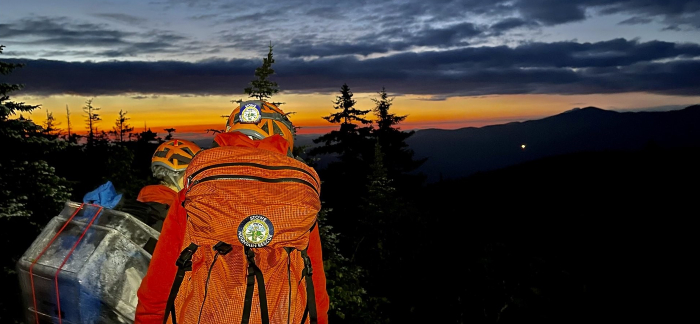
Wilderness Medicine Policy, Protocols and Quality Assurance: The fellow will join the working group of experts developing and amending the VT state EMS backcountry protocols and team training program, and will share responsibility for the quality assurance process for backcountry calls in which the protocols are applied.
Wilderness Medicine Mountain Operations: The fellow may work over the winter ski season at 3 Peaks Ski Clinic, staffing a small mountain clinic at the base of Sugarbush mountain with the option to join the ski patrol. In the Spring, the fellow may travel back to Alaska to work with the Denali Park Service at Basecamp for an immersive mountain ops experience during the climbing season, and an additional curriculum on glacial travel and rescue.
Rural EM: Rural emergency medicine is a natural extension of a wilderness medicine physician’s backcountry and front country emergency medicine skills and is an integral part of wilderness fellowship training at UVM. UVM wilderness medicine fellows will staff rural emergency departments throughout the UVM Health Network and work at the main academic medical center. Fellows with a particular passion for rural EM can pursue experiences including clinical work at Maniilaq Health Services in Kotzebue, AK, the second most remote hospital in the US. They can also attend a number of rural EM focused conferences and courses, as well as a year long Rural Health Leadership didactics run by the MGH, UCSF, and University of Washington rural and global health fellowships.
Longitudinal Experiences Punctuated by Expeditions, Teaching, and Remote Medical Work
Longitudinal Experiences: The fellows will work primarily at two of our UVM Network Hospitals. While they are not away on an expedition or teaching or doing remote work they will also be on call with Camel’s Hump Backcountry Rescue, with our State SAR Incident Command response for any large incidents, and have the opportunity to pursue flying with NorthCountry LifeFlight, a hoist mountain ops rescue team. They also will participate with UVMMC EMS and WM Faculty to review and QA all backcountry medical rescues that utilize the state BC Protocols.
Clinical Work
University of Vermont Medical Center, Burlington VT (UVMMC): UVM Medical Center's ED has more than 65,000 patient visits a year. It has 45 beds, including 10 specifically designated for trauma and major resuscitation. It has a separate pediatric ED affiliated with the University of Vermont Children's Hospital that provides children and families with outstanding pediatric emergency care. Shifts at UVMMC are 10.5 hours. The fellow will average 4 shifts/month at UVMMC.
Elizabethtown Community Hospital, Elizabethtown, NY (ECH): Elizabethtown Community Hospital (ECH) is part of The University of Vermont Health Network, a six-hospital network serving patients and their families in northern New York and Vermont. ECH is the only federally designated critical access hospital (CAH) north of Albany and east of Lake Ontario. In that capacity, ECH serves as a rural acute care manager, performing lifesaving services and coordinating the transfer of patients in need of additional and immediate care to other hospitals with which it has agreements in place. It has a 25 bed inpatient unit. Shifts at ECH are 24 hours. Fellows will work an average of 2 shifts per month at ECH.
Champlain Valley Physicians Hospital (CVPH): CVPH is a community hospital located in Plattsburgh, NY with 300 inpatient beds serving a wide catchment area of northeastern New York reaching up to the Canadian border. The ED cares for about 50,000 patients per year.
Alice Hyde Medical Center (AHMC): For more than 100 years, Alice Hyde Medical Center has provided compassionate, community-focused health care for more than 55,000 residents in the North Country region of New York. AHMC serves 35,175 people in our region and has 76 acute-care hospital beds.
The Central Vermont Medical Center (CVMC): CVMC is a rural hospital in Berlin, VT with 122 beds, serving a population of 66,000. The CVMC Emergency Department (ED) has 25 beds, sees about 25,000 patient visits per year, and is staffed by board-certified emergency physicians and experienced physician assistants.
Moonlighting/ additional pay opportunities: Fellows will have the opportunity to take on additional shifts during time periods that there is no conflict with fellowship responsibilities. Travel and compensation for a stint in Kotzebue will also offer a salary boost for the fellow.
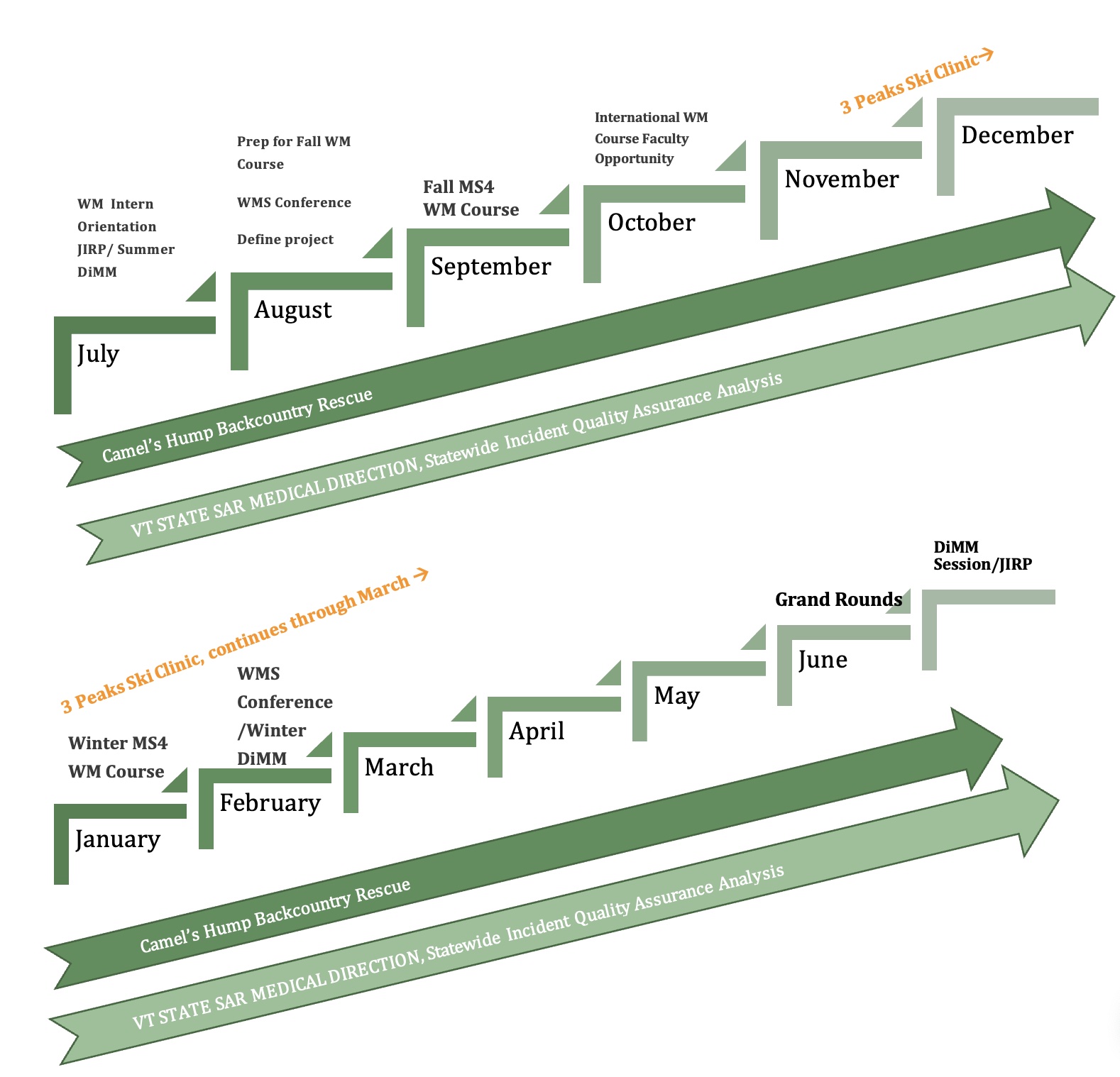
A Tailored Experience
The fellowship is designed to offer flexibility and support for a variety of interests that a fellow may have, including SCUBA in Lake Champlain, event medicine with Lake Placid IRONMAN and Vermont 100, wilderness medicine CME/WFR/WFA instruction, and more or less emphasis on global health or rural Emergency Medicine. Fellows benefit from our diverse range of faculty interests and experiences, with a structure of built-in flexibility to pursue individualized wilderness medicine career development.
Your Training Environment
During your year in Vermont, you’ll have the opportunity to both work and recreate with unmatched outdoor access from your front door. Burlington is tucked on the shores of beautiful Lake Champlain, with a plethora of hiking, biking, climbing, and skiing opportunities in the Green Mountains within 30 minutes from downtown. Day trips to the Adirondacks, the White Mountains, and beyond mean you’ll never exhaust new opportunities for exploration and adventure. We consider our peaks, lakes and mountainside huts the wilderness medicine fellowship classroom as much as your place to recharge and find inspiration. Lucky for all of us, the fellowship directors live outside of town in mountainside homes where they plan on serving up post-adventure feasts and rocking through core fellowship content in a relaxed and motivating setting.